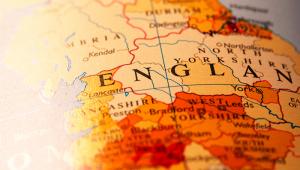Childcare is emerging as one of the key political battlegrounds ahead of next year’s election. It is hardly surprising that political parties have picked it out as almost the only policy area where they are prepared to dig deeper into their pockets and spend more money. Yesterday saw the latest significant announcement by the coalition government – more generous 'tax free' childcare and some more support for poorer families. But in the rush to respond to concerns about living standards we must not forget another aspect of this debate – to give all children the best start in life childcare must be good quality.
Save the Children has been working for some time on the childcare affordability crisis. In 2011 we published The Childcare Trap – a report that highlighted the issue of high childcare costs as a barrier to employment, and forcing families to make difficult financial decisions like cutting back on food and household bills. Since then, we have been campaigning with other organisations for more generous support through Universal Credit for childcare.
In 2011, parents told us time and time again how big an issue childcare was. But if anything the last few years have seen the scale of the challenge increase. Incomes for many families have remained stagnant and political debate has turned even more to questions around the cost of living.
The Family and Childcare Trust’s annual childcare costs survey recently found that since 2009, childcare prices have gone up by 27%, while wages have remained the same, making childcare even more unaffordable for parents. The cost of full-time childcare for a family with two children, aged two and five, is nearly £12,000 a year.
So the package announced by the government yesterday should be warmly welcomed. It represents a significant step towards a system of affordable childcare in Britain. The 'tax free' childcare scheme will be more generous – supporting children up to the age of 12, rather than five, and paying out up to £2,000, rather than £1,200 as previously planned. And in addition when the Universal Credit comes into effect more households will receive the same support: rather than only just those earning above the Personal Tax Allowance having 85% of their childcare costs covered, this level of help will apply to all those on the UC.
But childcare is about more than just affordability. Another key policy objective when thinking about childcare is quality – whether children are being cared for safely, but also, critically, whether they are getting the kind of care which helps them develop well. In other words, while childcare plays an essential role in helping parents go to work it is also a vital part of supporting the learning and development of young children before they start school.
Childcare and early education is a big social mobility issue for the UK. If we are to ensure that all children have a fair starting point when they begin school this will mean doing much more to improve the quality of childcare, especially for children from more deprived backgrounds.
A forthcoming publication by Save the Children will show that there are still worrying differences in learning and child development between children from different income backgrounds – particularly in their early language and communication skills.
Learning to speak and the ability to be able to recognise and say words matters enormously for children being able to make friends and for core skills like learning how to read. It is therefore crucial for the poorest children to be receiving high quality care and education. Yet our forthcoming report finds that there remain clear differences between five year old children from different income groups in their ability to recognise simple words.
As it currently stands, the quality of provision for the poorest children is too often actually worse than that for their better off peers. Disadvantaged children are less likely to be accessing high-quality, full-time education and care in their early years. For example, research by the London School of Economics on Ofsted inspections found that Private Voluntary and Independent (PVI) settings in the poorest areas are significantly less likely to be considered outstanding: 27% of PVI settings in the wealthiest areas are considered outstanding, whereas only 16% fall into this category in the poorest areas.
The introduction of an ‘early years pupil premium’, which was also announced today, is certainly a step in the right direction. The government argue that this could be used, for example, to recruit higher skilled staff – something we know from international experience to be critical.
Establishing the principle of targeting extra financial support for the poorest children in pre-school settings is important. What this funding needs to signal is a beginning in a shift in the debate towards how we improve the quality of early years education and care, particularly for the poorest.
The coalition government have gone further than many predicted on improving support for working families, with some significant support for low-income children and families. As we approach the election childcare is unlikely to fall off the agenda. But as it continued to be debated a big part of the next phase of discussion must continue to address affordability challenges, but move much more to ensure that childcare and early education is a tool for improving social mobility and ensuring that all children have a fair start in life.











